Voltage is the force that pushes current around a circuit. Imagine a battery being like a pump, pushing the current around the circuit. A more complicated way of defining it is that voltage is the difference in electrical energy between two points on a circuit.
You can buy batteries with different voltages or use multiple batteries to increase the voltage in a circuit. The bigger the voltage the more current flows around a circuit.
How is voltage measured?
Voltage is measured in volts.
The voltage of a standard AA battery is 1.5V.
The voltage of household wiring varies around the world but is 230V in the UK and 120V in the US.
When we made a potato battery we used a voltmeter to check the voltage.
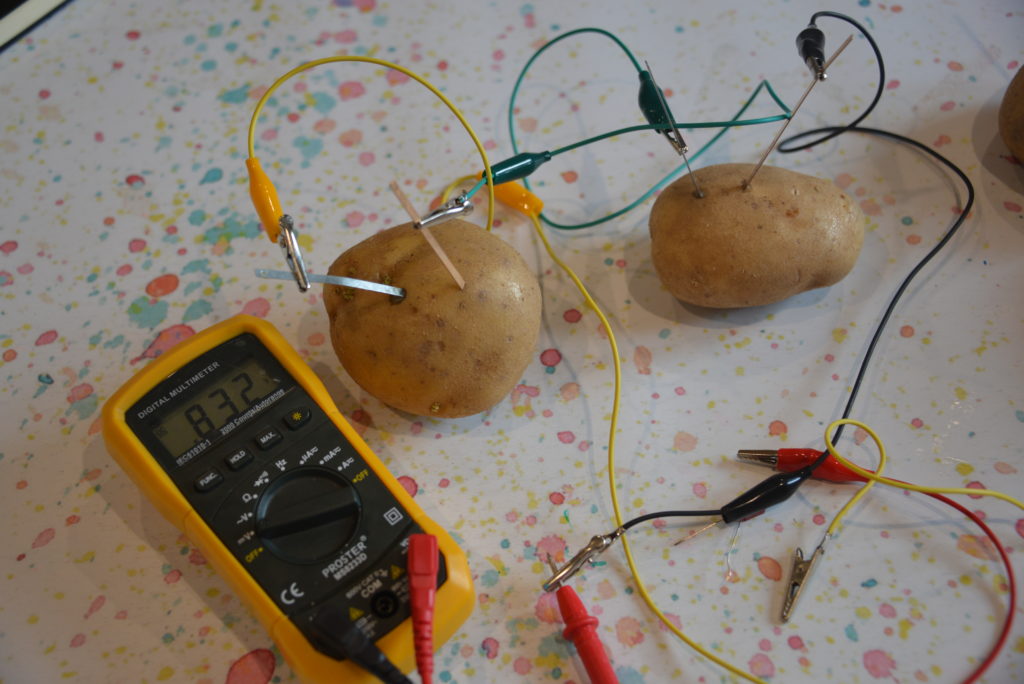
What is current?
Current is the flow of charge ( negative electrons ) around a complete circuit. If the circuit breaks the current stops flowing. Current is measured in Amperes!
You can learn more about electricity and circuits with one of my easy electricity projects.
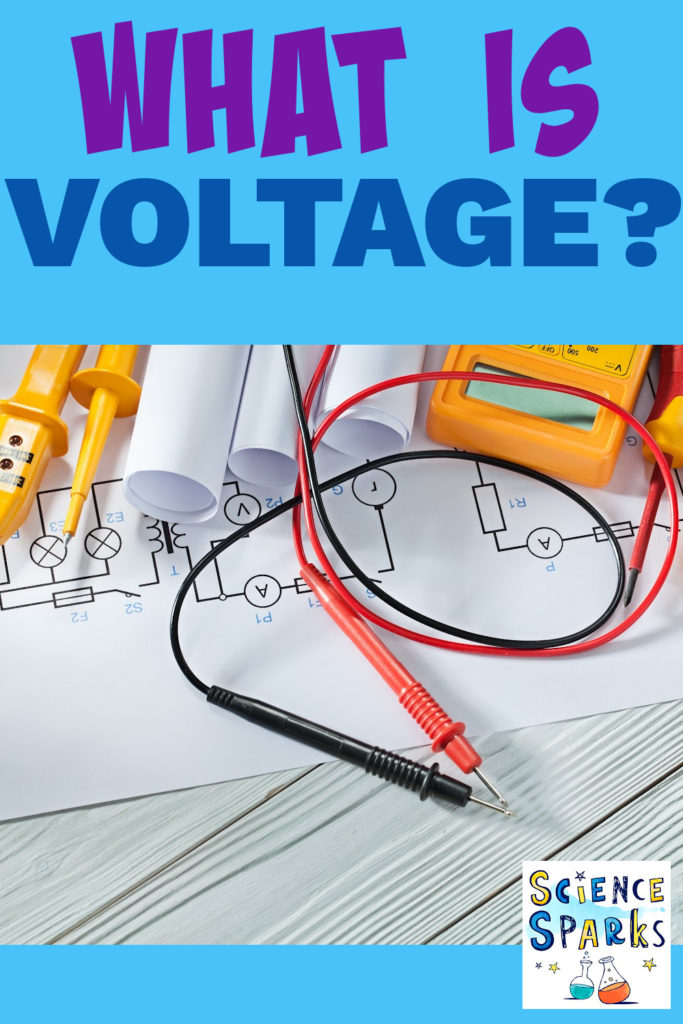
Last Updated on July 18, 2022 by Emma Vanstone

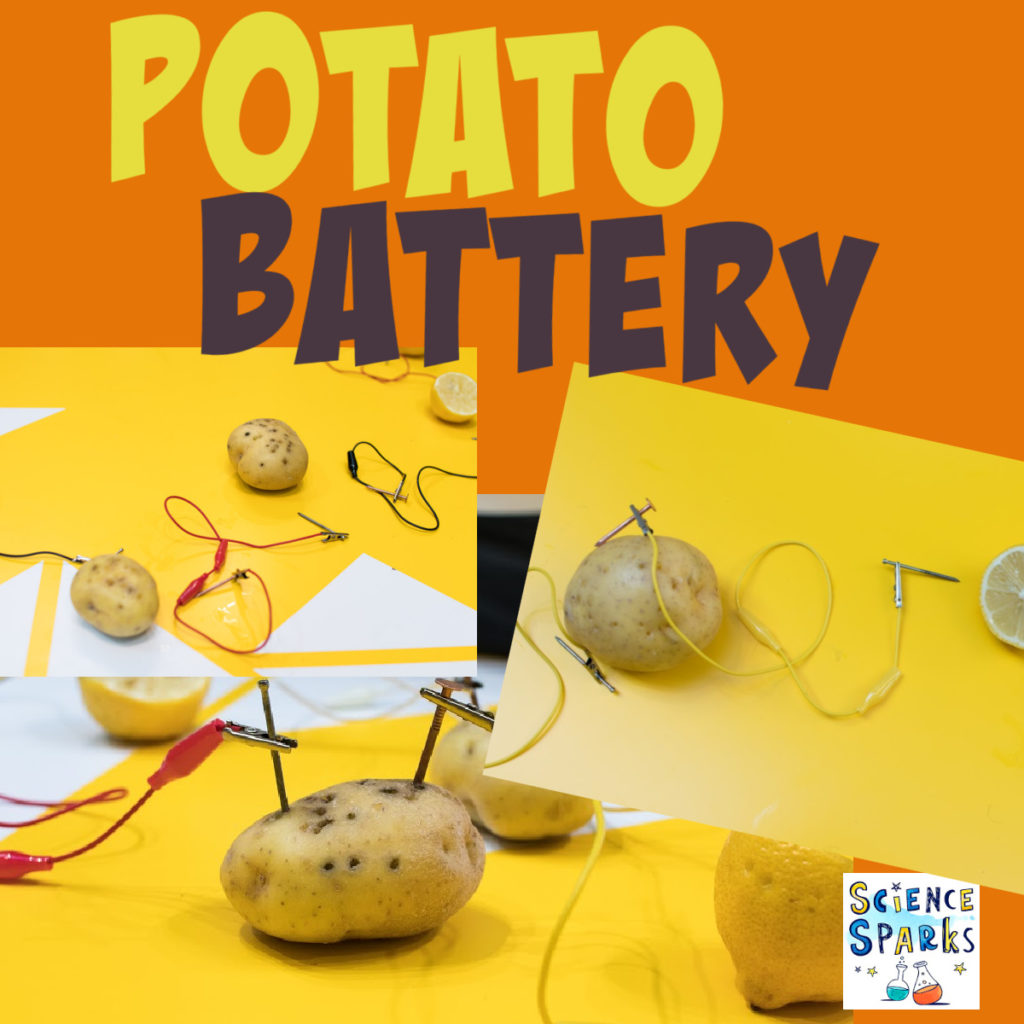
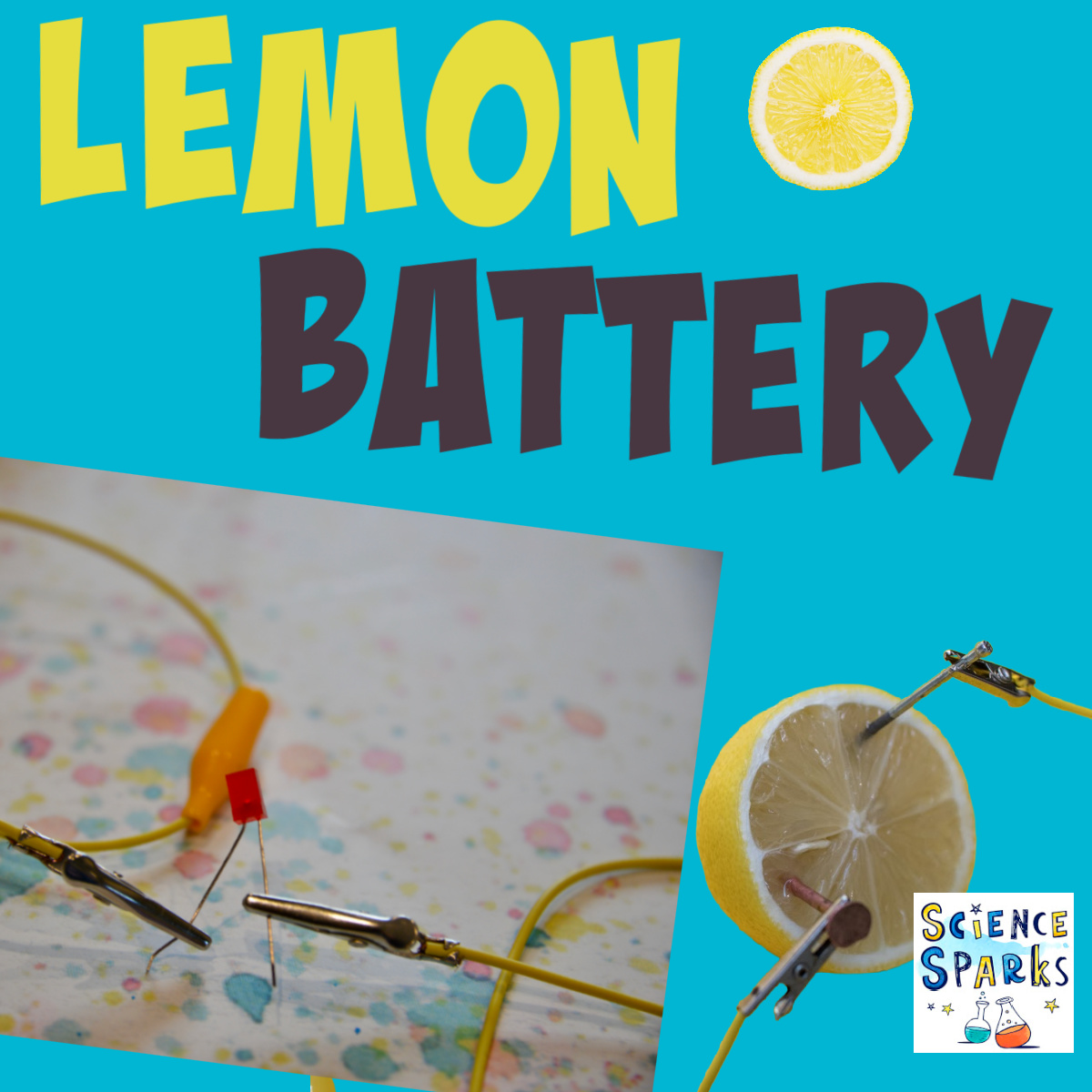
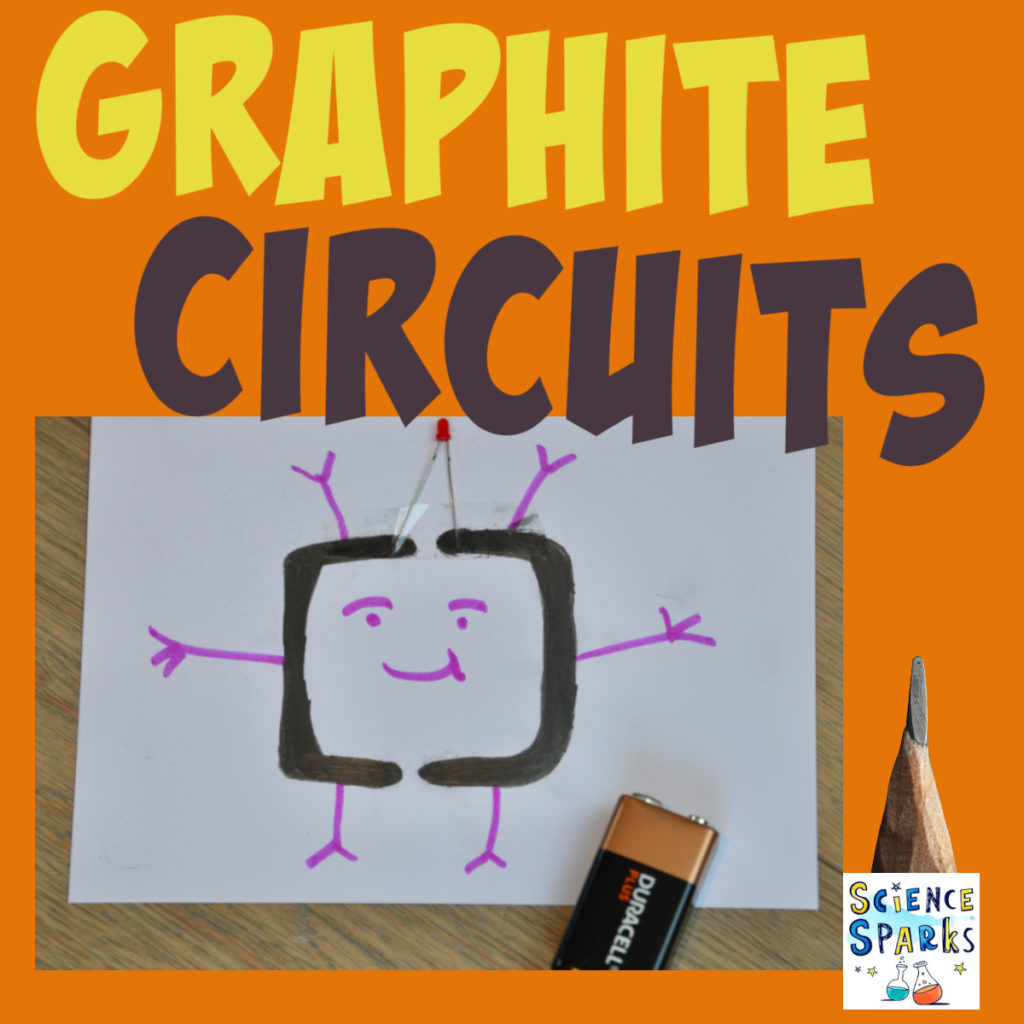
Leave a Reply